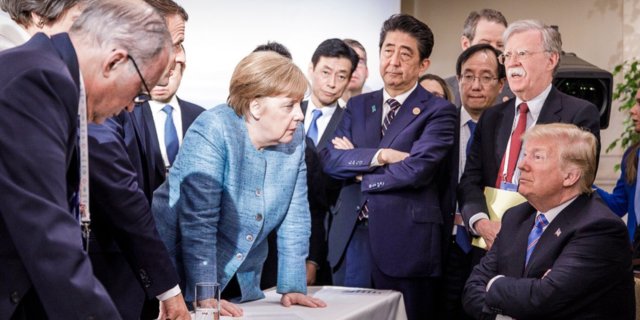G7 Leaders Agree on a Blueprint for a Better World
A remarkable document came out of the G7 summit. It’s a blueprint for creating a just, fair, and environmentally viable world. Leaders of the world’s most powerful industrial economies are coming together in unity and releasing a document that I agree with almost all of. Among other things, the G7 Charlevoix Declaration:
- Affirms the rights of minorities (including indigenous people) and women
- Positively addresses the conflict between Israel and Palestine, tension around Korea and Iran, Russian power grabs, and even the misery inflicted by Daesh (a/k/a the Islamic State)
- Calls for worker protections
- Promotes sustainable and democratic health care, economic growth, and even tax structures that benefit all
- Has strong language urging protection of the earth and its resources
Really, the only place where I have concerns is in the endorsement of “WTO-consistent” trade policies. My understanding is that some of the World Trade Organization’s policies abrogate citizens’ and countries’ rights, including the right to enforce strict environmental and labor laws, allowing companies to sue if they find these laws burdensome. However, the citation above is almost 20 years old, and more recent documents from the WTO itself deny that claim.
With nearly 50 years as an activist, I find it utterly amazing that the “Leaders of the Free World” can agree on a document of such scope. We could actually call it revolutionary. The leaders of nations–and, in other forums, many leaders of major corporations–are agreeing to a manifesto of people’s and planetary rights. I’m not really used to having them on my side.

And of course, the fly in the ointment was the disgraceful behavior of the “world leader” who happens to be in charge of my own country right now. The barrage of in-person pouts and Twitter nastygrams including repudiating the statement he signed make me embarrassed once again that this cruel, mean-spirited, and incompetent person supposedly represents me. Sigh!


